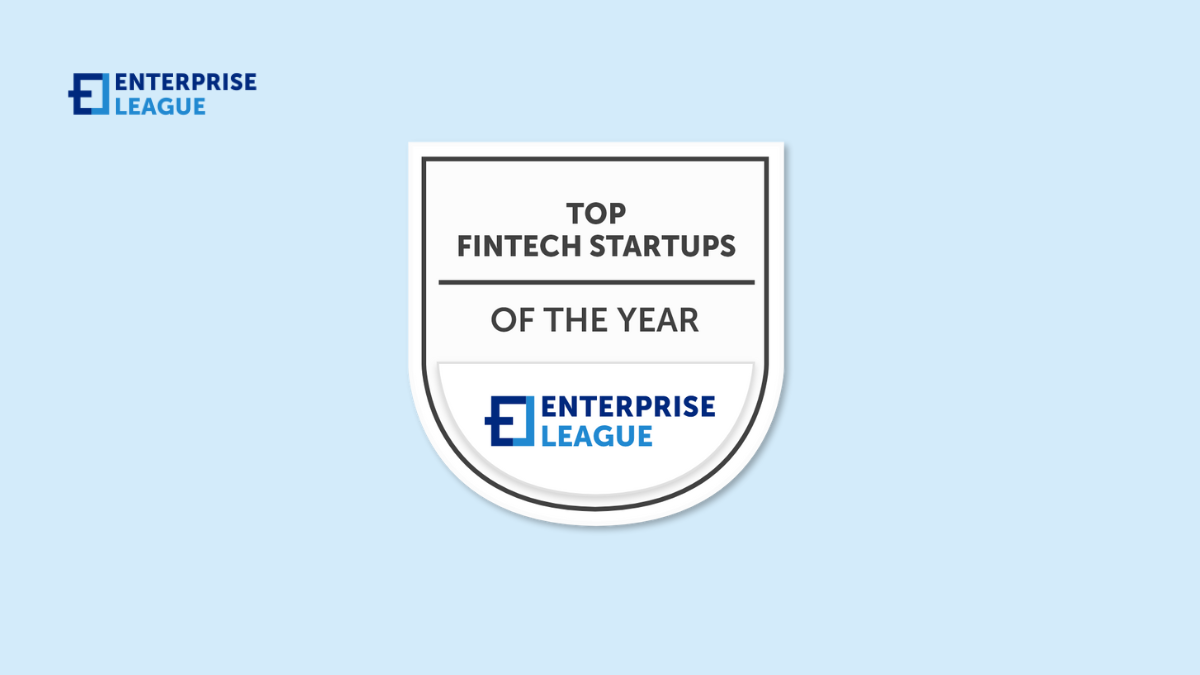The fintech sector has seen rapid growth and innovation in recent years. As financial technology continues to disrupt traditional models, fintech startups are using cutting-edge technology like AI, blockchain, and big data analytics to offer faster, more convenient, and personalized financial services.
Top fintech startups
Complete list of fintech startups that are worth knowing:
Monzo
Founded in 2015, Monzo aims to make digital banking more convenient, transparent, and user-friendly. Their interface allows customers to check balances, send money to friends, divide bills, and set spending budgets. Users also get instant notifications for every expense and income transaction.
Beyond personal finance management, the Monzo app enables direct integration with other helpful services too. Customers can securely connect Monzo to budgeting apps, credit services, savings platforms, and more.
Sendwave
Founded in 2014, Sendwave leverages partnerships with banks and agents globally to facilitate electronic deposits, cash pickup, and mobile wallet delivery in a growing number of corridors between developed and emerging markets.
By streamlining digital sending and localized payout, Sendwave removes barriers to financial support flowing where it matters most. Their network bridges international remittance gaps.
BharatPe
Founded in 2018, BharatPe enables merchants to accept QR code payments through their app and offers easy access to loans based on transaction history. Additional services facilitate bank account opening and tax filings.
By streamlining business financial needs on one platform, BharatPe empowers the growth of underserved merchants and retailers. Their innovative services help small businesses compete in the digital economy with financial visibility and control.
Wise
Founded in 2010, Wise aimed to disrupt the expensive money transfer industry. Banks typically charge high fees and use poor exchange rates when people need to send money internationally.
Wise built a smarter cross-border transfer network. They have local bank accounts around the world that enable real exchange rates. This cuts out the fees and rate markups of banks.
Affirm
Founded in 2012, Affirm aims to provide an alternative to credit cards for financing purchases. Shoppers can apply to split any purchase over $50 into biweekly or monthly installments. Approval only takes a few seconds.
Affirm partners with thousands of retailers to offer installment loans at checkout. Customers can use Affirm online or in stores like Walmart, Target and more. There are no late fees or hidden costs – just clear payment terms upfront.
Gohenry
Launched in 2012, Gohenry aims to make learning about money engaging for youth. Kids get personalized debit cards to use in stores or online. Parents manage the accounts through a mobile app.
Parents can set spending limits, choose where the card can be used, and track purchases. Kids learn to budget allowances, save for goals, and make smart spending choices.
Bookipi
Founded in 2013, Bookipi aims to simplify billing and money management for solopreneurs. The intuitive app allows creating, sending, and tracking invoices with just a few taps.
Users can connect bank accounts to automatically sync income and expenses. Expenses can be tracked with receipt photos for taxes. Reporting provides insights on cash flow, profit and loss, and other metrics.
Z1 Conta
Launched in Brazil in 2019, Z1 Conta aims to prepare the next generation for smart money habits. The app has digital bank accounts without monthly fees or hidden costs. Z1 Conta turns saving, budgeting, and spending into a game with points and rewards. There are financial education courses and content tailored to youth as well.
Users can receive PIX instant payments from relatives and make purchases online or in stores. Parents can oversee accounts and transfers for oversight. By making digital banking interactive and educational, Z1 Conta engages young users. The app empowers teenagers and young adults to use money consciously, establishing healthy financial skills.
Toast
Founded in 2011, Toast offers an all-in-one platform for restaurants’ technology needs. Their point-of-sale system lets restaurants take orders, process payments, and track sales data. Toast’s software also covers guest marketing, online ordering, team management, and inventory. Features are tailored specifically to simplify restaurant operations.
By combining hardware terminals, financial software, and analytics, Toast gives restaurants complete visibility and control. Owners gain insights to optimize operations and boost profitability.
Credflow
Founded in 2020, Credflow aims to make business credit more accessible and affordable in India. Their automated platform assesses applicants’ financial records, bank statements, tax filings, and other data points.
Advanced analytics and artificial intelligence evaluate the data to generate risk scores and insights for lenders. This gives lenders increased confidence during underwriting. Business owners benefit from faster, fairer access to working capital loans.
Spiff
Founded in 2018, Spiff integrates the data, systems, and workflows of finance teams. The software automatically matches records across sales, HR, accounting, and other departments. Spiff syncs data flows to reduce manual work and errors. It provides a unified dashboard to manage core financial operations in one place.
Advanced machine learning identifies patterns and surfaces insights to drive growth. Spiff uncovers new sales opportunities and incentives to maximize revenue. By centralizing financial data and leveraging AI, Spiff increases productivity and performance. The platform reduces friction and complexity in managing core finance functions.
TrueLayer
Founded in 2016, TrueLayer aims to make it easier to access financial data. Their open banking platform connects to bank APIs in Europe and the UK. This allows apps to directly yet securely access users’ financial data and payment rails. TrueLayer handles all the integrations and authentication.
Developers can then build personalized money apps and services using TrueLayer’s infrastructure and dashboard. The startup empowers innovation in finance. TrueLayer has enabled new digital banks, credit apps, investment platforms and more. By unlocking financial data, they are helping shape the future of finance.
Thought Machine
Founded in 2014, Thought Machine wants to empower banks to quickly innovate and meet customer needs. Most banks rely on old, inflexible technology that is hard to improve. Thought Machine’s Vault system is built natively in the cloud. This makes it easy for banks to continuously develop new features and apps.
They gain agility to evolve with trends and regulations. Banks can use Vault to rapidly launch new products, optimize operations, and improve digital experiences. By migrating core systems to an adaptive cloud platform, banks can better serve customers.
Rally
Launched in 2017, Rally opened up alternatives investing in high-end assets beyond just the wealthy. Their platform allows buying partial ownership in collectibles starting at just $10. Rally thoroughly vets and acquires assets from top auctions and dealers. Then shares of the assets are sold publicly on their app and website.
Investors can browse and track collectibles like a financial portfolio. There is potential for appreciation as assets increase in value over time. Rally also offers storage, insurance and sale facilitation for holdings.
Arthena
Founded in 2017, Arthena aims to bring sophistication to art investing through technology. Their platform analyzes millions of data points to identify promising artists and works.
Advanced algorithms evaluate factors like auction results, exhibitions, media mentions, and expert reviews. This data feeds proprietary models that identify investment opportunities.
Debbie
Launched in 2018, Debbie aims to motivate people to become debt-free. Users link their credit cards and loans to create a unified dashboard showing what they owe. The app builds a tailored payoff plan based on balances, interest rates and monthly budgets. As milestones are met, users earn redeemable points.
Debbie provides tools to visualize progress and the impact of interest over time. Automated payment tracking keeps users motivated and accountable. By making debt repayment a rewarding game, Debbie drives engagement and success.
Ozone API
Founded in 2020, Ozone API aims to accelerate open finance adoption. Banks want to provide open APIs but struggle with complexity and regulation.
The Ozone platform handles secure data access, consent, risk checks and more. Banks can quickly launch compliant, value-adding APIs for things like account aggregation, payments, and personal finance apps. Going beyond just compliance, Ozone APIs create opportunities for banks. Third-party partnerships drive innovation and revenue generation.
WeCovr
Founded in 2019, WeCovr is pioneering embedded insurance in the UK. Their API platform lets businesses integrate customized insurance into their existing services. WeCovr has already issued over 100,000 policies embedded into apps, websites, and devices. Partners benefit from new revenue streams while protecting users from risks.
For example, a travel app could insure against trip cancellations or lost luggage. A fitness app could insure accident damage to a smart watch. The options are vast. WeCovr handles everything from risk analysis to claims management on behalf of partners. This allows focus on core offerings while WeCovr layers on protection.
Kymatio
Founded in 2021, Kymatio aims to make the human the strongest link in cyber defense. Their platform gauges employee preparedness through phishing simulations and other tests. Kymatio provides personalized training to improve cyber vigilance based on risk profiles.
Training is continuous to counter evolving threats like phishing, ransomware, and social engineering. For IT teams, Kymatio offers analytics to identify and address vulnerabilities. Automated scanning uncovers exposed credentials before criminals can exploit them.
Yoello
Founded in 2015, Yoello provides an alternative to expensive card payments. Customers simply scan a QR code to pay or place orders without downloads or signup. For peer-to-peer payments, money moves straight from bank account to bank account. This avoids credit card fees. Yoello also facilitates account-to-account transfers for businesses.
Vendors across retail, restaurants, events and services use Yoello for checkout and ordering. It’s easy to set up and integrate with existing systems.
Paysme
Launching in 2022, Paysme aims to be the go-to finance app for SMEs in Southeast Asia. Despite being a large market, SMEs are underserved when it comes to digital tools. The Paysme super app will consolidate essential business services into a single intuitive platform. Features will be tailored specifically to SME workflows and needs.
SMEs will be able to get paid, access capital, manage finances, and more in one place. By integrating seamlessly with partners, Paysme makes business management simple. Paysme seeks to empower SMEs through easy digitization. The super app model provides convenience alongside the expertise and network of collaborating specialists.
Conclusion
Investors and consumers alike can expect fintech solutions to expand access to financial services, increase efficiency, and continue to evolve to meet customer needs. With talented founders identifying gaps in the market and creating innovative products, fintech startups seems poised to keep transforming how we manage our money for the foreseeable future.
Discover more creative startups that might interest you:
- Innovative electrical equipment companies offering cutting-edge solutions.
- Ground-breaking space startups redefining our limits of space exploration.
- Revolutionary biotech startups helping the world with amazing innovations.
- Find out today’s most ambitious SaaS startups worldwide
- Innovative legal startups with amazing legal solutions.
Related Articles
10 business tips for beginners to help you build a healthy brand
Starting a business can be quite the challenge especially if you’re all new to entrepreneurship. These business tips for beginners will help you set off on the right foot.
SEO writing: Five foolproof tips to secure you the first page
When it comes to SEO writing it’s more guessing and less evidence about what works and what doesn’t. Luckily, we know what can really help you reach the first page.
How to onboard a new employee: Tips for quick integration
Your guide to smoother employee onboarding where you will find practical strategies that help new hires feel welcome and become productive team members faster.
10 business tips for beginners to help you build a healthy brand
Starting a business can be quite the challenge especially if you’re all new to entrepreneurship. These business tips for beginners will help you set off on the right foot.
SEO writing: Five foolproof tips to secure you the first page
When it comes to SEO writing it’s more guessing and less evidence about what works and what doesn’t. Luckily, we know what can really help you reach the first page.








